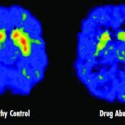Why drinkers do it all again
Some people drink to forget, but scientists have found that anyone who binge drinks is more likely to forget only the worst experiences of being drunk – which is why alcohol is such an addictive drug.
Alcohol has been found to affect memory in a selective manner. Drinking makes it easier to remember the good things about a party but harder to recall the bad things that happen after having too much.
Studies into the memories of people engaged in heavy drinking have shown that it is the inability to remember the worst excesses of a night out – while remembering the happy things that led up to them – is one of the main causes of repeated binge drinking.
“The effects of alcohol on mood are known contributors to its use and abuse. It is less known how its effects on memory and inhibitory control add to alcohol being and addictive drug,” said Professor Theodora Duka of Sussex University.
“Material acquired in an intoxicated state is less effectively retrieved in a sober state. Thus people who abuse alcohol forget the consequences of intoxication during periods of abstinence,” Professor Duka said.
Alcohol is well known to affect mood. It reduces anxiety, induces elation and pleasure, while removing inhibition, making people feel more in control compared to when they are sober.
But the effect of alcohol on memory is one of the least-understood aspects of alcohol abuse, yet it could be one of the most important in terms of explaining why the drug is so powerfully addictive, Professor Duka told the British Association’s Science Festival at Liverpool University.
“The effect of alcohol to weaken control processes intuitively appears to be the most important contributor to the development of alcohol addiction, since alcohol addiction is perceived to be an inability to control drinking,” she said.
“Alcohol facilitates memories for emotional events experienced before intoxication – mostly positive – and impairs memories for emotional events experienced after intoxication – often negative – biasing memory to positive effects of alcohol, and support [for] further drinking.”
Memory tests on volunteers who were shown emotion-laden images before, during and after a bout of drinking found there was a clear degradation in memory as the alcohol began to build up in their bodies.
“Alcohol facilitated memory for material seen after its administration. More importantly, under the influence of alcohol, emotional images seen before alcohol consumption were recalled more whereas emotional images seen after alcohol consumption were recalled less,” she said.
Further studies found alcohol also increases the risk of making wrong judgements and impulsive decisions, especially in women. This is another reason why drinking can increase the risk of further bingeing by affecting the brain’s control process, Professor Duka said. “Social heavy drinkers who binge drink show inability to withhold an inappropriate response when sober. They also are worse in planning than their counterparts that do not binge drink,” she said.
___________
source: The Independent
